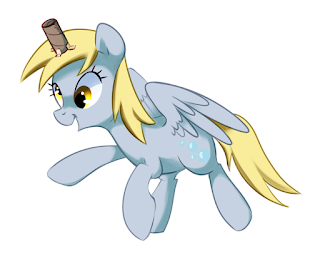Last week we started to address the problem with space travel and combat in RPGs by addressing the "tactical mini-game" sequence most TTPRGs seem to use. The reasons for the mini-game approach as I see it are as follows:
- First you have the hobby’s wargame origins, which can be exacerbated by RPGs with board game tie-ins.
- SF games that are licensed from or inspired by movies and television. These games attempt to model the epic eye-candy of space battles on the macro-scale.
- A simulationist approach to the game that requires specialized rules to resolve a spacecraft in a vacuum (or any vehicle) as a different system from characters in a dungeon (or whatever).
 |
| A Unicorn, if you will. |
RPGs are a special animal in ways that are hard to define. After years of playing (and decades of not playing), I can't say that I'm any closer to determining what set of traits make specific games or campaigns fun in general,but I remember the legendary ones I've run or played in. The ones that I still think about. They had two things in common:
- The plot was a situation - either by design or as the supposed plot disintegrated.
- Players' were allowed to plan, discuss and engage with the world and one another.
- Player's took initiative.
That's what I want in Project NEPTUNE. My friends, family and fellow players gathered around discussing the situation and what they can do about it. I have seen genius there, and engagement. I wanna encourage that.
In my proposal that all characters are Damage Control on a starship creates that situation. The anticipation of an upcoming combat or hazard provides opportunities for planning and engagement, even if the characters don’t have space-faring skills. Player Characters have an entire spacecraft's worth of resources to utilize in their planning.
Now we have to get organized.
ACRONYMS & ANARCHY
In my Damage control model, I'm using a few arbitrary assumptions:
- Consideration for a game group's average size of 2-4 players
- Finally finally dealing with my unresolved love-hate relationship with the Frigate design in Starships & Spacemen 2nd Edition which assigns a crew of ten to a starship.
- No built-in Hierarchy that puts one PC or NPC in charge.
The first starship officially designed for Project NEPTUNE is the Ultra Light Cruiser. It has a crew of twelve and is the smallest (reusable) starship fitted with a warp drive.
The crew is divided into three Damage control parties, each with three crew assigned. These DC parties operate out of three Flight Control Rooms (FCRs) dispersed around the spacecraft. These are called FCRs instead of DC central(s) because they also house the computers that fly and fight the ship in the same armored compartment. I chose three at first as an arbitrary reference back to Northshield's Triumvirate but kept it when I realized that with three FCRs, no single shot from an enemy could take out all three.
Now, this only accounts for nine crew. The other three are two are pilots for the ship's auxiliary craft and a Medic. There are jump seats in the FCRs for these three, bringing their normal capacity to four crew.
This arraignment was chosen to maximize choices. Do the PCs all occupy a single FCR, or should they spread out? Part of the procedures I'm developing will make where you are on the ship as its attacked important. All PC eggs in one basket may not be a good idea.
So, that's the first two down, now for the hard part. How do you run a starship unless someone's in charge?
Turns out we have a template for this in the way pirate crews in the Caribbean operated during the 'golden age' of piracy.
Before we move forward, lets set fire to some strawman arguments and get them out of the way:
- I am fully aware that actually pirates were ruthless and amoral at best and sadistic psychopaths at worst. They were declared hostis humani generis for a reason. That said, I figure that any system of governance that can keep The Enemies of All Mankind organized and effective will work even better for regular people.
- Forget what you've seen in Pirates of the Caribbean. A Pirate Captain served at the sufferance of their crew and could be replaced at any time by a vote of no-confidence - no mutiny required. The only time a Pirate Captain had absolute authority was during an actual battle. This is clearly laid out in the Ship's Articles.
What follows is a flight of fancy to give an idea of what I'm thinking of; a setting that supports the play style of TTRPGs, is functionally plausible, and keeps the focus of the Player Characters.
A group of starting PCs are on Mars. They don't have a ship but may want one someday. There's lots to do on Mars but our PCs want to get into space - there are other star systems out there and in the aftermath of the Alien Invasion and the Devastation of Earth we want our PCs to go out there and Aventure.
There is no Academy or Government program for training spacers because there is no government per se - The Martian Consensus doesn't work that way. That's fine though, because anyone who can live on Mars can live in space. That's rapidly becoming Humanity's niche/stereotype in the galactic community - the people who live in space as opposed to a habitable planet.
Anyway, there are ships in port and looking for crew and our PCs are at least marginally qualified. The ships needing spacers will post their Articles for perusal online. These Articles may look similar but the devil is in the details. The PCs choose which ships they want to consider based on these details.
Getting on a ship will involve some sort of interview and the signing of the Articles. This is a time when Friends can help, Favors can be called in, and all sorts of social interactions ensue. If a given ship is between cruises, the Articles may be up for amendment by the ship's company and any new crew, with all the back-and-forth, negotiations and intrigue that can entail.
Once the PCs sign the Articles and are accepted as part of the ship's company, they would go through a process of learning similar to what NUBs on submarines go through earning their Dolphins. The PCs will need to learn how the systems work and get qualified on each and every system before being fully accepted into the ship's company. This doesn't have to be role-played or necessarily even rolled - in can be represented by learning the game's procedures for space travel, combat and damage control.
As member's of the ship's company, the PCs have all the rights and responsibilities thereof. They can vote on all 'matters of the moment', get shares of profits, be consulted on what improvements to the ship they want, and what sort of jobs and missions the ship undertakes.
Perhaps most importantly to this topic of this post, the PCs will have the following rights as well:
- They may call for a vote of no-confidence in the Captain's leadership at anytime the ship is not in direct or immanent danger.
- They have a Mission Abort option, where the PCs my at anytime elect to call for a bug-out in battle to save the ship. They may have to answer to the ship's company for using this option, but that will be after the fact.
- They may stand for election to Caption or Quartermaster at any time the incumbents lose a vote of no-confidence.
The above Pirate Model relies heavily on social interactions at all levels by adding NPC crew and removing the command hierarchy present in most if not all other models of space travel. Now persuasion, negotiation, and other social interactions are options for getting the ship to do what the PCs want. Railroading becomes a less viable option when the Captain can be voted out and a PC party forms a third of the crew.
For a model that uses so many social interactions, we'll need a robust set of rules or procedures to accommodate them. We'll discuss options for that in our next How you Play is What you Win post.
After that, we'll get down to some concrete game design. Stay tuned.




No comments:
Post a Comment
Questions, comments, criticisms? All non-Trolls welcome!